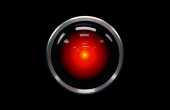Abhimanyu Shekhar
Designer by day. Uncommonly invested in movies, games, and books by the night.
Contributor II
- Plebian Penman
- Common Writer
- Lurker
- Pssst
- Hand Raiser
- Sharp-Eyed Citizen
- Town Watch
- Actor
- ?
- Articles
9 - Featured
8 - Comments
82
- Ext. Comments
25 - Processed
19 - Revisions
16
- Topics
13 - Topics Taken
3 - Notes
28
- Topics Proc.
5 - Topics Rev.
0
- Points
1567 - Rank
77 - Score
862
Latest Articles
Latest Topics
The Evolution of the AntiheroAnalyze the progression of the antihero trope. How does it reflect changing social anxieties? Look at examples from classic cinema to modern streaming hits. The article can be structured as a timeline first. Film Noir laid the groundwork, and TV’s prestige era exploded the antihero trope. Film Noir is a classic antihero breeding ground (cynical detectives, femme fatales, etc.). Another excellent point to cover here would be to highlight TV’s greater creative freedom and depth that allowed for more nuance than cinema often could. Now, I cannot think of all the classic movies, but some ideas do come to mind. Of course, there are many more examples to dissect properly. 40s/50s film noir has “The Private Detective” such as Philip Marlowe (The Big Sleep), Sam Spade (The Maltese Falcon) – world-weary, morally compromised, yet with an inner code. Then we had the “Femme Fatale” trope. Think Phyllis Dietrichson (Double Indemnity) – manipulative, uses sexuality for her own goals, challenges traditional female roles. 60s/70s Westerns saw a different breed altogether, I believe. First, you got the spaghetti Western Antihero, still relatable. A good example would be Clint Eastwood’s "Man with No Name" (A Fistful of Dollars, etc.) – self-serving, violent, but audiences root for him against even worse figures. Soon afterward, they were quick to offer more revisionist examples in cinema. There are many examples of this one but the main one is William Munny (Unforgiven) – haunted by past sins, questions the "heroic" myth of the cowboy. Then let’s come to the 70s/80s. This is the neo-noir and crime thrillers age, kind of like an evolution. Travis Bickle (Taxi Driver) is the prime example here. Deeply disturbed but the isolation-amid-urban-decay is a point that almost every city-dweller can relate with, pretty much. Thelma and Louise covers women taking agency, breaking free, and similar concepts, even when it means violence. This is an early example of the female antihero, and worth highlighting. 2000 onward we have the TV/streaming age. Three examples here: 1) Tony Soprano (The Sopranos) – quintessential modern antihero – mobster, yet we see his family struggles and therapy humanize him. 2) Walter White (Breaking Bad) – from mild-mannered to ruthless drug lord, his transformation is both horrifying and strangely compelling. 3) Joe Goldberg (You), Villanelle (Killing Eve) – pushing boundaries, playing with audience sympathy
|
Pending | The Graphic Novel RevolutionComics are quickly becoming the new literary powerhouse, so to speak. Examine the rise of graphic novels as serious literature. Analyze how the art form brings distinct storytelling advantages. |
Pending | Gaming's Uncomfortable SubjectsThe central question to be asked is "When is it Art, When is it Exploitation?". One can analyze games that tackle controversial themes (war, violence). Are they providing insight, or are they using shock value for its own sake? |
Pending | Are Choices in Video Games Meaningful?Analyze ‘choice-based’ games. Are player decisions truly impactful, or are they an illusion? Tie this to philosophical debates about free will. |
Subscriptions: Game developers moving toward subscriptionsThis article will analyze the growing trend of game developers and publishers moving towards subscription models instead of one-time purchases. Examples: Apple Arcade, Google Stadia, Microsoft’s Game Pass (old, but now more aggressive than ever push towards subscription-only titles and removing one-time purchase options swifter than ever), Ubisoft , EA Play, PlayStation Now. Studios with a single game or franchise are also going the subscription route. Is this good? Bad? Subscriptions of the Game Pass, for example, have increased by millions in the last year. And it’s true that indie games, when they come to Game Pass, earn more than they could ever make solo. Xbox Game Pass is a unique case which will need its own section here. Instead of subscribing to a service that gives free delivery (like Amazon) or TV shows (like Netflix) – a game can be anywhere from 20 hours of fun for hardcore games or 1,000 hours of play and replays – how is it fair that you pay less than I do for the same game in this case? A headline: "GDC has released its annual State of the Industry survey of 4,000 developers, over one-fourth of which were concerned such models would devalue games." Another topic to cover is games-as-a-service (or more broadly tech-as-a-service) models being adopted by videogame publishers and developers. Even gaming hardware seems to be moving in that direction, with Nvidia providing subscription to RTX 30-series gaming capabilities instead of actually owning a video card. Starting from newspapers and magazines; then moving to TV shows, movies, and software; and now to games – subscriptions seem to be the way forward. But is it really better to have a monthly subscription to play games than to own the games and judging by the current pace of things, even renting your hardware and not owning it?
|
Pending | When do we call them shows and not TV shows?Let’s face it, the "TV" bit in "TV shows" is pretty pointless. The majority of the people you find talking about TV shows are watching them on computers, laptops and even phones. Sure, Netflix likes to say that they cater to the TV audience and that most of the viewing happens on TV apps, but there is hardly anyone who has a subscription to one of the many services such as Netflix and HBO Max but watches stuff only on their TV. We can also explore what we could call these shows now.
|
Pending | What makes a TV show intellectual or stimulating?From Marvel’s superhero-based TV shows to shows such as Black Mirror – we have a very differing opinion of "good". For shows that fall into the intellectual or stimulating category, what makes them tick? A few shows to compare: Black Mirror, The Wire, Sherlock, Westworld, Peaky Blinders, The Vikings vs. Stranger Things, MCU shows, sitcoms, Game of Thrones. Also, where does it leave shows like Breaking Bad, The Boys? More specifically, is it the story, acting, direction, or the intended audience?
|
Pending | Is it time to let Marvel go?The Marvel Cinematic Universe is known for its action-packed superhero blockbusters. The whole genre is single-handedly carried by Disney at this point, with WB’s DC being the honorable competitor even Marvel must pity. But with Phase 4, viewers are already reminiscing how good the initial movies were. This is point every franchise or medium reaches – "the old stuff was so much better." Derive comparisons between this phenomenon and other cinema franchises (might as well expand to other media, such as music or art) – and conclude whether the Marvel’s marvelous days are over? For once, with great powers come great responsibilities. As the sole arbiter of the "superhero" genre, is Marvel’s lack in handling its responsibilities* going to spell its doom? *When I say lack in handling responsibilities I mean churning out movies solely for ticket sales even when the story could use more work (latest MCU movies and TV shows) and trying to milk as much cash as possible (launching a barrage of TV shows).
|
Latest Comments
| The Influence of J.R.R. Tolkien on Modern Video Gaming | |
But where will you draw the line between monotonous tasks and complex works? Besides, AI music generation and now video and 3D generation are already tackling more advanced work. Specialized AI models trained on financial data, medical data, human psychology, worldbuilding fiction, etc., for example, can all do these tasks better. If the middle class feels the brunt, they won’t hire other complex task doers the same way, meaning the job loss is not isolated to a particular bracket. Yes, the initial assumption is correct. They can be used to do some repetitive, less creative tasks and save time for us. But the rate at which these models are growing is nothing to disregard casually. For example, let’s say companies are laying off programmers, copywriters, and sales people. One programmer might find good use of AI to generate or debug code, but when companies lay off employees, it affects the overall employment rate. Sales work can be called monotonous, but how do we really justify the laying off of a sales team (as Klarna did) vs. a programmer still being able to get a job and using AI to improve their speed? Not to mention companies are laying off programmers too due to AI. | Movies & Media as the Source of AI Phobia |
A chatbot like ChatGPT or Gemini is exactly that, a chatbot. It’s built to predict what humans would respond like or write after being trained on heaps of data. If you use it for anything that’s not in its training, it will make up facts, called hallucinating. It’s not right or wrong, it’s doing its job of predicting what the answer to X question SHOULD look like in a human world. A specialized tool, on the other hand, is different. Bloomberg trained a custom AI. The aim was not to converse with people. Bloomberg chopped up decades of financial data, fed it to the model. That model can do financial predictions based on your risk profile much better than an individual financial advisor. The same goes for specialized AI tools made to identify certain diseases (where AI constantly beats real diagnosticians). So, to go to ChatGPT and judge it on a specialized task is not the full picture. In this test, we’re disregarding AI too easily, calling it incompetent. The real use of ChatGPT is to hold a conversion, remember context, so try to treat it as a psychiatrist. It’s likely to have more knowledge than your local psychiatrist. No company has made a legal AI tool afaik. There’s little incentive right now, as such a lawyer won’t be admitted in the court, meaning there’s no profit to be made here by selling this. | Movies & Media as the Source of AI Phobia |
This is the common misconception that today’s AI is just a glorified autocomplete. We’ve been using things like chess AI for years, haven’t we? See, the problem is not about generalizing context, pretending to reason, or even the social evils (deepfakes, political misinformation, etc. because legislation can solve those issues). The real issue is the way a model works. For writing text, a generative AI models is trained on top-notch text already written by humans beings from literary greats to Reddit internet warriors. Now, it can write in any tone or style with the intended depth. Ergo, professional writers have a hard time. A recent BBC article narrated the tale of a 60-member team getting downsized to 1 person, who now oversees text that the AI created. Train it on programming, and it can code better than humans. Result? Mass layoffs in IT companies. Train it on art, train it on music, train it on videos, and it can do that too. There are news reports of uncanny results and corporate layoffs in all these fields. Music labels sued those new AI music generators, for example, that can create Taylor Swift songs that Taylor Swift has never sung. Deliver the same pop-blast and catchy tunes. To substantiate this claim, I’d like you to check the tracking document that covers all top companies in the world (I’ve forgotten the name). It clearly tells that even with huge upswings in profit, layoffs are even greater in the last 2 years. COVID-induced economic slowdown is not to blame anymore. Now, we see generative AI enter new domains. Weather forecasting, protein synthesis, and even text-to-3D, which basically means even the complex job of a motion graphics artist, medical scientist, 3D modeler, etc. is at risk. Just bear with me for a second. These are facts – generative AI is entering new domains, even very complex ones. I’d say it’s safe to call something like 3D modeling or writing a fiction novel a very human pursuit. It involes reasonable creativity. If AI can beat humans in these, my question is, is getting hung up on “whether it can really think or just pretend” is not practical. Yes, it has no mind, isn’t actively weighing ethics, isn’t really feeling. But it’s doing a better job. The material world respects efficiency (a little too much). If generative AI tools become too advanced, permeate all creative domains, totally overwhemly not-so-creative domains like live chat support, and are growing at a breakneck speed getting better each iteration, saying “AI currently is only a threat to the jobs of those at the end of a phone link, or an online chat, who are employed to answer queries or sell products.” is objectively wrong. And my main gripe is with the next sentence, “It’s not intelligent under any reasonable definition of intelligence” as it deflects people’s attention from the real concern – generative AI causing layoffs – and reduces it to a philosophical question. It’s not intelligent, I give you that. But that doesn’t mean we dismiss AI as hype. It might not be the best way to look at it. Awareness equals legislation. Companies are churning out new models at a speed we simply cannot legislate for. New AI labs and venture capitalist funded startups are finding new ways to chop data and enter a new domain. It was extremely easy to enter the domains of text and image generation. The data is very easy to chop. Something like programming is more difficult. But when they are building models that are trained on music and videos, this means it’s not that hard to chop and tokenize even such complex stuff for training purposes. And once someone finds a way to tokenize some kind of data (weather data, protein synthesis, financial market movements, finding loopholes in legal defense, Disney animation movies, and so on), AI can do a better job than many, many humans together given enough training time. This is pretty much what’s happening. Identifying Alzheimer’s or finding out what makes a Hayao Miyazaki movie work, this will allow the AI to do both of those things better. Someone just needs to make a specialized tool and tokenize the data. Data centers used for training are cheap anyway. | Movies & Media as the Source of AI Phobia |
“what if that intelligence ends up being a reflection of our own biases?” that’s been the #1 question I’ve asked since all this blew up. Fantastic read! | Ex Machina: Creating AI with Masculine Perspective |
This article hits me right in the feels! It’s so true that Sora, Riku, and Kairi go through WAY too much for teenagers, and it’s no wonder they all have some baggage. But hey, that’s what makes them such compelling characters, right? Overcoming all that darkness really shows their strength. I also like how the article talks about the Wayfinder Trio. They’re another group who have faced some serious hardship. I guess Kingdom Hearts is more than just a whacky Disney adventure after all! | How Kingdom Hearts Handles Trauma and Resilience |
Whoa, this article got me thinking about how much time I actually spend gaming. It’s cool that some games are actually telling you to take a break now, because who doesn’t get sucked into a game and lose track of time? Makes sense though, since apparently gaming for too long can really mess with your health. I gotta admit, I probably should set some timers or something. Maybe there’s an app for that? Anyway, thanks for the reality check, this article! | Time Out Features in Video Games and the Effect Too Much Screen Time Has on Gamers |
One particle in two places is actually possible in quantum physics, but only until observed. There are at least a dozen takes on what makes this shift from “unobserved” and superimposed to “observed” and in a definite place happen. Most theories tend to suggest this snap (technically the collapse of the wavefunction) happens instantaneously when we’re no more limited to the sub-Planck length and enter the macro-universe (sizes atomic and up). Though this has no relation with time travel, these particles exist in the same slice of time. | Time Travel in Fiction |








Beautiful article